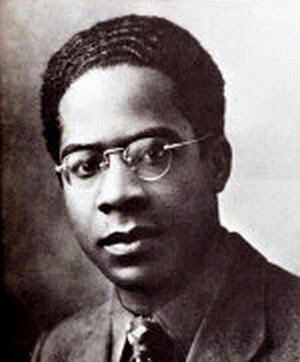 |
| Aimé Césaire |
Aimé Césaire was a noted writer, scholar and political leader from Martinique, who is credited with coining the term Negritude. Césaire is known as the father of Negritude.
Negritude (which can be translated as "Blackness") was a Francophone African and Caribbean movement of the 1920s, '30s and '40s which stressed the importance of accepting and celebrating Blackness, and understanding Black history and culture.
Césaire wrote poems, plays and a biography of Toussaint L'Ouverture, hero of the Haitian Revolution.
Negritude was influenced by Langston Hughes and other writers of the Harlem Renaissance, most notably Claude McKay, another writer of Caribbean origin. Other members of the Negritude movement included Franz Fanon, Algerian author of Wretched of the Earth and Black Skin, White Masks.
Events include a screening of A Voice for History, a film by Euzhan Palcy; a live stage performance of Césaire's classic work Notebook of a Return to My Native Land [in English]; and a performance and discussion of Césaire's A Season in the Congo, which explores Patrice Lumumba's fight to free his country from Belgian colonial rule.
For details, see: Black History and Cultural Events.
No comments:
Post a Comment